Everything you need, at a glance
Our Insights are detailed and well researched. They keep a pulse on what’s happening in the market and allows you to stay ahead of the curve.
Sign up to our newsletter to get exclusive insights and never miss an article.

Strategy consulting is facing disruption as clients demand more flexibility, industry expertise, and quality.
Consultants are needed in the good times and the bad, and as such the industry is recession proof. Or so the thinking goes…
10 years ago, HBR explained that strategy consulting was on the cusp of disruption, driven by a reduction in pure strategy work, growth of in-house strategy teams and democratization of data. Fast forward to 2021-22 and that prediction was looking rather amiss with the strategy consulting industry registering consistent double digit growth. But, just a year later, the warnings became reality. A perfect storm of increased salaries, over-hiring through Covid and a smaller percentage of core strategy work meant the strategy consulting firms were not ready for the correction in the market. Low utilization resulted in lay-offs.
In this article we summarise what we’re hearing about hiring strategy consultants, directly from Chief Strategy Officers in large enterprises and Operating Partners in Private Equity. Client demand for consulting has rapidly shifted in the last couple of years and we believe that a new generation of boutique firms will be best positioned to capitalize on these changes. Typically led by ex-McKinsey, BCG and Bain Partners, they are providing a combination of deep industry expertise and flexible delivery models to provide superior returns on investment.
If you’d like to speak to any of these boutiques, to hear more about their offering, just click here.
Consulting on the cusp of disruption
Over a decade ago, the Harvard Business Review wrote about consulting on the cusp of disruption. They explained that consulting had experienced two decades of rapid growth in the 90s and 00s. As a result, the share of work that was “classic strategy” had steadily decreased to just 20%, down from 60% to 70% some 30 years ago.
This work was far less defensible, and as a result the incumbent firms were going to see their competitive position eroded by technology and alternative staffing models. “The vast turnover at consultancies means armies of experienced strategists are available for hire by former clients, whose increasing sophistication allows them to allocate work instead of relying on one-stop shops as they did in the past.”
It concluded with a warning: “...the pace of change being managed by the traditional clients of consulting firms will continue to accelerate, with devastating effects on providers that don’t keep up. If you are currently on the leadership team of a consultancy and you’re inclined to be sanguine about disruption, ask yourself: Is your firm changing (at least) as rapidly as your most demanding clients?”
The COVID boom and bust
During the post-COVID boom years, you would be forgiven for thinking that the HBR had got things rather wrong. The consulting industry saw rapid growth driven by increased corporate earnings and M&A. In 2021 alone, the strategy industry saw revenues grow by 15%.
The challenge for the consultancies in 2021-22 was hiring enough people - both freelance and full-time to keep up with client demand. Alongside the need for extra capacity, The “Great Resignation” meant retention was the other big focus, heralding blanket pay rises across the board.
A big driver of the Covid ‘boom’ was in fact the very thing the HBR warned would be the strategy firms’ downfall - expansion beyond the core strategy work. As you can see from below, pure strategic advisory shrunk as a percentage of revenue from 17% in 2010 to just 10% in 2023.

This combination of pay rises, over-hiring and an increasing reliance on non-core strategy work meant the industry was not prepared for the correction in 2022-23. As central banks wrestled to get inflation under control, the increased cost of debt drove the M&A market to a stand-still. Earnings were also squeezed, meaning companies had less cash to spend on consulting.
Suddenly, the HBR’s decade old warning seemed prescient: utilisation dropped rapidly sparking job cuts and wage stagnation, in turn prompting more consultants to jump ship and either go freelance or join a smaller outfit.
Now the dust is settling, has the buyer landscape for consulting fundamentally changed?
Given our exposure to Chief Strategy Officers in large enterprises and Operating Partners in PE, we speak with key decision makers regularly. And some very clear themes are developing:
- There’s increased need for deep industry experience
- Fees have reached unsustainable levels and typical delivery models are too rigid
- Quality isn’t what it used to be
Increased need for industry experience: With the increased prevalence of data, analytics and internal strategy teams, consultants are increasingly used to bring deep industry experience. PE funds in particular are looking for people who have spent 10-15+ years in the industry - people who haven’t simply observed what great looks like, but have been responsible for it (and know the mistakes to avoid).
Fees at unsustainable levels and rigid delivery model: Fees rose rapidly in 2021 and 2022. Whilst demand soared and consultants were having to turn away work, fees were central to growing revenues. These changes in fees were also critical to underwriting the increased compensation for consultants, both below and at Partner level. Whilst this new fee level might be defensible for core strategy work, clients are not prepared to pay such high fees for non-strategy consulting. Clients are also demanding more flexible delivery models: EM+2 isn’t the right model for a long-term transformation, and they want their partners to scale-up and down teams at the right times to provide the most impact.
Decline in quality: In our 10+ years in business we’ve not heard the quality of strategy consulting firms come into question, until now. Perhaps the most concerning of these three trends, increasingly we hear clients reference a lower bar to entry for consultants in the “boom” years of 2021-22, and that hybrid working resulted in lower levels of mentorship for more junior consultants. This is further evidenced by a recent survey commissioned by digital consultancy, Emergn: of 702 senior executives and project managers surveyed, 84% felt that the services of McKinsey, Boston Consulting Group (BCG), and Bain “were no help at all” in corporate transformation projects, while only 13% found them more helpful than a hindrance.
We’re starting to see some big impacts on the consulting (supplier) side
In response to this, we’re seeing some disruptive changes in the consulting landscape. Over the last 6-12 months we’ve seen:
- Top performing partners leaving to launch boutiques
- Rise of quality in the freelancer market
- Change from AI on the horizon
Partners launching boutiques: Top-billing Partners are getting frustrated with the high-overheads that the consultancies have built up over the last few years, and it’s increasingly hard to get compensated as their predecessors did. This, partnered with the rise in quality of the freelance market, has meant a number of Partners are setting-up their own boutiques. Whilst this is not in itself a new phenomenon, the difference we are seeing is the volume at which it’s happening, and the quality of the Partners leaving. We’ve partnered with a couple of these new firms, and are seeing huge demand for their offerings.
Rise of quality in the freelancer market: we’ve written about this over the last decade a few times. The quality, and volume, of freelancers in the market has dramatically improved over the last 10 years. This trend has accelerated with the increased prevalence of Private Equity using it as a route to hire full-time team members: combining both a high quality bar, and providing the freelancers with extremely relevant experience.
Change from AI on the horizon: whilst the impact of AI thus far has been more limited than many expected, we are expecting this to play a critical role in the next 1-3 years. The role of the Analysts and Associates will change from a focus on analytics, to application to a specific company and industry. As such, our prediction is that there’ll be a premium on people who have deep experience within a company, even at the more junior levels.
What does it mean, and what should you do about it
The strategy consulting firms are some of the most well-known and respected brands in the global business world. We do not expect that to change, but we do expect a period of much lower growth/ decline in real-terms. Given the majority of the cost is variable (people), we have no doubt that this will be effectively navigated, and that profitability will be restored in the mid-term.
However, we don’t expect them to grow into the implementation and transformation space to the extent that they did in 2021-22. We believe the firms with a right-to win are those who have deep industry expertise outside of consulting, having successfully run similar businesses. We also believe that teams driving transformation will be flexible freelance consultants, who can offer more agile support than an EM+2 model, and aren’t as reliant on the apprenticeship model. Associates will no longer be a few years out of Grad of Business school - they will be 10-15 years into their career, with a real understanding of what it takes to implement change.
If you’d like to get in touch and discuss with the Boutiques we are currently partnering with, please click below. We work exclusively with ex McKinsey, BCG and Bain Partners to lead all projects.
.png)
Benchmark your pay, working hours and job satisfaction against your peers with compensation breakdowns by industry and functional experience.
Discover Your Value with the Global Pay Index
Unlock exclusive access to the Movemeon Global Pay Index, the definitive resource for professionals seeking clarity on market compensation trends. Dive into data collected from 4,000+ global responses to benchmark your earnings across industries, seniority levels, and job types—whether permanent or freelance. With insights on pay by country, gender pay gaps, and working hours, this tool empowers you to negotiate better, plan your career, or benchmark hiring strategies.
The Global Pay Index is designed to support you:
- Benchmark Your Salary: See how your pay compares across industries, job functions, and seniority levels globally.
- Plan Your Career: Gain insights into pay trends, job satisfaction, and working hours to make informed career decisions.
- Negotiate with Confidence: Use comprehensive market data to strengthen your salary and contract negotiations.
- Explore Global Pay Trends: Understand pay variations by country and how freelance compares to permanent roles.
- Close Pay Gaps: Access gender pay gap data and identify discrepancies across industries and roles.
- Stay Competitive: Employers can use the index to attract and retain top talent with competitive offers.
Get exclusive access today and make data-driven career or hiring decisions!
To explore the full data and make informed decisions for your future - please simply provide your email address in the form below:

The future leader factories and what it means for hiring senior leadership roles
A disproportionate number of CEOs have worked in top-consulting firms.
OnDesk recently ran the numbers - they looked at the CEOs of the US’s largest operating companies and analysed where people had started their careers. Of the top 8 most common companies, 6 are consultancies:
.png)
In this article, we look into what makes consulting alumni so well-suited to lead organisations. And what this means for you hiring for leadership positions in your team and organisation.
If you'd like to find out more about senior hiring with Movemeon get in touch with our team here.
Diverse exposure: versatility for complex challenges
Consultants are exposed to a wide array of industries, challenges, and business models during their careers. This breadth of experience enables them to adapt quickly to new environments, making them invaluable as leaders in dynamic or fast-changing markets.
High-Profile Example:
- Indra Nooyi, former CEO of PepsiCo, leveraged her experience at BCG to navigate PepsiCo’s global expansion and drive innovation in sustainability.
Consultants’ ability to analyse diverse scenarios and develop tailored solutions makes them particularly adept at addressing complex, multi-faceted challenges. This versatility can mean the difference between an executive who only fits into a niche and one who can lead across functions and industries.
Analytical proficiency: a data-driven and structured approach to leadership
Consultants are trained to analyse problems methodically, using data to guide decision-making. For CEOs, this analytical rigour is crucial in navigating uncertainty and driving strategic priorities.
High-Profile Example:
- James Gorman, Chairman and former CEO of Morgan Stanley, used his McKinsey-honed analytical skills to stabilise and grow Morgan Stanley following the 2008 financial crisis.
Hiring managers should value candidates with consulting backgrounds for their ability to synthesise complex information into actionable insights—a skill essential for steering organisations through uncertainty and change.
Strategic insight: long-term thinking for organisational growth
A key focus of consulting is strategy development—defining clear goals, aligning resources, and ensuring execution. This mirrors the core responsibilities of a CEO, making consultants natural fits for leadership roles.
High-Profile Example:
- Sheryl Sandberg, former COO of Meta (Facebook), transitioned from McKinsey to redefine Facebook’s operational strategy, contributing significantly to its growth trajectory.
Candidates with consulting experience bring a proven ability to think beyond immediate challenges and design strategies that position organisations for long-term success.
Extensive networks: access to key relationships
Consultants develop extensive professional networks through interactions with senior executives, cross-functional teams, and industry leaders. These connections often become a powerful asset in leadership roles.
High-Profile Example:
- Sundar Pichai, CEO of Alphabet (Google), utilised the network and insights gained from his time at McKinsey to transition into leadership in the competitive tech industry.
When considering candidates, hiring managers should recognise that consultants often bring with them a wealth of professional relationships that can facilitate partnerships, mentorships, and market opportunities.
Leadership development: coached for executive excellence
Consulting firms invest heavily in leadership development, equipping their employees with early management responsibility and structured training programs. Consultants are often tasked with leading client projects and managing teams early in their careers, giving them a head start in developing the skills required for executive roles.
High-Profile Example:
- Julie Sweet, CEO of Accenture, exemplifies how consulting firms prepare individuals for leadership, transitioning seamlessly into executive roles by leveraging her extensive consulting experience.
This preparation translates into candidates who are not only strategic thinkers but also adept at managing teams, driving results, and navigating high-pressure environments.
What this means for your team and your company
Consultants are a great succession plan for your Board. They will bring with them a broad skillset, proven leadership ability and clear strategic vision. Whilst this is critical in leadership roles, it’s also an invaluable skillset to have throughout your organisation.
Despite the number of well documented redundancies across consulting, it hasn’t made the market any easier to hire in. We typically find clients are looking for an ex-consultant who has already made the adjustment into “industry”, be that a PE-backed company or an Enterprise business. They’ve therefore built up a track record of delivery and “operating” over the previous 5-10 years.
If you’d like to learn more about how you would bring this type of talent to your team or company, please do let us know.

Insider tips for consultants to craft a standout CV, highlight skills, and impress recruiters.
A lot of CVs get sent through applications via Movemeon. Especially CVs from consultants and former consultants (given our membership)! Here are a few insider tips and tricks:
Make every word count
In the UK, your CV should ideally fit nicely onto 1 page. If it’s a real squash, go for 2, but never more than that. You’re probably past needing to write about being a school prefect or captaining the tennis team. Companies receive a huge number of applications and typically your CV will be reviewed on an average of 6 seconds. Remember, your CV is a conversation starter. It’s a tool to get you to interview, where you can share more details. It should leave the reader wanting more. If you write too much detail, you may make it more difficult to strike up interesting dialogue at interview.
Don't structure your CV by project
If you are a consultant, writing a few lines/bullets about a selection of projects is NOT a reader-friendly format. You are thereby requiring the reader to draw their own conclusions about your key skills. Instead, try structuring your CV by key skill (‘analysis’, ‘team leadership’, ‘finance’, ‘stakeholder management’ etc) and writing a few / lines bullets to substantiate each of these – drawing from a range of projects for each skill. Put the skills in bold as mini titles. Even more, adapt the skills you list to reflect the exact skills – even the language – of the employer’s job post. That way, the reader can scan through your CV and tick all their boxes in seconds.
Write a personal summary
This is 2-3 lines at the top of the page saying “this is me, what I want to do and why that’s a perfect fit for this job”. The combination of personal summary & the bold list of skills is all the reader needs to know.
Make it easy to navigate: first impressions count, so it needs to look attractive. A “busy” CV intimidates the reader while a good, clear format is your best friend: use section titles and bullet points to divide into bite-sized chunks and avoid long passages of text. Resist the temptation to reduce the size of your margins – whoever reads your CV will want somewhere to make notes. The reader will have specific “boxes that you need to tick” so the easier you make it for them to find this information, the better.
Talk about results
Don’t just describe what you did. Your achievements – particularly at work – will seem more impressive if you get across the impact that your actions had. Use numbers where possible (e.g., generated 9% sales growth YoY, delivered £92m efficiency savings).
Don't miss iff your interests
Often what you do outside of work is what can differentiate you from another consultant/ex-consultant with similar experience. It shows you’re an active, interesting person and often provides a comfortable ice breaker at interview.
Get friends to proofread
Your CV is very personal, so you will find it impossible to be objective. Send it to a few friends and take their advice. Headhunters will often have useful tips too. It might involve a few iterations but it will get better with each one.
Never send your CV to a headhunter or recruitment agent without a draft not for distribution watermark
You may not know this but recruitment agencies may blanket email out your CV to loads of companies without your knowledge. If they get a bite, they will then contact you and try to talk you into applying for a role. This can make you look really uncoordinated if you’ve applied for a role at the same company directly in the meantime. If a recruiter asks for a copy of your CV, say no until they provide you with an exact job description that interests you and is live. Even then, send a pdf version of your CV clearly stating exactly which role and company this CV is to be used for.
Even a great CV benefits from a cover letter
If you think a job sounds amazing, you can be sure that others like you think the same. Your application will not stand out unless you write a compelling cover letter. What’s the point in spending hours revamping your CV for it to be overlooked as your application lacks a cover letter?! For help on this, why don’t you have a look at our article about the importance of cover letters?
At Movemeon, we connect (ex) consultants and freelancers with tailored job opportunities, industry insight & events. Register now to view and apply to jobs and for networking and events.
Click here to view insider tips on how to be successful on Movemeon from our success managers

Chief of Staff roles suit ex-consultants, vary by firm size, and offer paths to leadership.
Are you looking to hire a Chief of Staff? In this article Movemeon’s co-founder Rich shed light on how this role can be different depending on the size of your organisation, what salary you need to pay and the most important thing to get right when hiring a Chief of Staff.
The Chief of Staff role is a perfect fit for the consulting skill set. Beyond strategy & transformation teams, it’s a common home for consultants making their first job move out of consulting and into “industry”. It’s a role that can exist in everything from startups to multinationals to public sector organisations, and it’s very commonplace in Private Equity backed portfolio companies too.
1. What alternative job titles are there for a Chief of Staff?
The job title “Chief of Staff” is enough to put some people off hiring one. Let’s face it: the title is very vague, somewhat grandiose, and conjures up images of the West Wing. That’s why many organisations prefer to use a more descriptive job title, like “Right Hand to the CEO”, for the purpose of marketing this opportunity.
Plenty of larger organisations also have a “Right Hand to” for various senior team members, like the COO, CFO etc. In smaller organisations, the Chief of Staff can be a shared resource for the leadership team (rather than purely for the CEO / Founder).
What alternative job titles are there for a “Chief of Staff” or “Right Hand to”?
Other job titles I’ve seen used include:
- “Strategic Assistant to”
- “CEO’s / Founder’s Associate”
- “CEO Office Lead” / “Head of the CEO’s Office”
Equally, roles such as “Head of Special Projects” or “Head of Strategic Initiatives” tend to have very similar remits. In itself, the “Chief of Staff” job title tends only to be used in larger organisations (including the public sector).
The job title “Chief of Staff” is very vague, that’s why many organisations prefer to use a more descriptive job title, like “Right Hand to the CEO”.
2. Startups & scaleups – Why hire a Chief of Staff?
It has become very commonplace for a growing business to hire a Chief of Staff. In these types of startup businesses, the title “Right Hand to” or “Strategic Assistant to” is more widely used, particularly outside of the US (where Chief of Staff is more usual).
The main reason startups and scaleups hire a Chief of Staff is to give the CEO / Founder and senior leadership team more bandwidth. Typically, these organisations are not yet big enough (e.g, 25-250 people) for a fully-fledged strategy or transformation or special projects team. Therefore, the Chief of Staff fulfills that remit and typically, as the organisation grows, goes on to lead a larger team within a more established / formal organisational structure (commonly COO, Strategy & Innovation Director).
The main responsibility of the Chief of Staff is to take ownership of important projects that the members of the leadership team don’t have capacity to deliver, but are important enough to be on the CEO’s to-do list. These projects can range from researching new market entry, to creating organisational processes, to developing an early insights-type function.
In smaller startups the CEO tends to do multiple roles as the team is not big enough to hire a dedicated COO / CFO / Head of Insight etc, and if there is a Co-Founder, they tend to be technical (i.e, focused on the product). So the Chief of Staff becomes a “mini me”, helping the CEO / Commercially Oriented Founder deliver across all these areas. Simply puts it doubles the CEO’s capacity.
The main reason startups & scaleups hire a Chief of Staff is to give the CEO / Founder and senior leadership team more bandwidth.
3. Startups & scaleups – How much do they pay a Chief of Staff and what experience do they look for in candidates?
Startups favour a more junior hire for Chief of Staff than larger organisations. In our experience of supporting 1,000s of startups hires through Movemeon, someone with ~2-5 years of consulting experience is what startup Founders and CEOs look for.
In joining a startup, consultants are happy to make a sideways (or sometimes slight downwards) move in terms of basic salary. So, in the UK, the basic salary for a startup Chief of Staff is normally between £70,000 – £100,000, depending on the seniority desired.
Equity / options are very much expected for a Chief of Staff and the startups able to recruit the highest potential talent will have these in place. After all, the Chief of Staff often goes on to become a future leader as the business continues to grow (e.g, Commercial Director, Country Manager, Chief Strategy Officer etc).
Startups favour a more junior hire for Chief of Staff than larger organisations. In the UK, the basic salary for a startup Chief of Staff is normally between £70,000 – £100,000, depending on seniority desired.
4. Large organisations – Why do they hire a Chief of Staff?
In larger Private Equity-backed businesses, large domestic corporations and multinationals, the Chief of Staff role is typically aimed at a more senior candidate (although hiring for a more junior “strategic assistant” is not uncommon, perhaps in combination with a true “Chief of Staff”). While an element of “special projects” remains, a larger part of the role is to act on behalf of, or deputise for the CEO. The role involves a lot of stakeholder management of other senior colleagues and, as such, CEOs and other Execs hiring for a Chief of Staff typically seek candidates with ~7-15 years of experience.
In the largest organisations, the Chief of Staff will normally manage a team within the “CEO Office”, including analysts to support project delivery & research (to give the Chief of Staff bandwidth). It’s important to note that the Chief of Staff is not typically in charge of the CEO diary and there would be a separate Executive Assistant in that role (not to be confused with the “Strategic Assistant” – a common job title for a more junior Chief of Staff).
Chief of Staff is normally a stepping stone role performed for 12-24 months before moving into a commercial or operational leadership position. In this way, and similar to how strategy teams can be used for talent acquisition, hiring a Chief of staff every 1-2 years is a way to create a pipeline of high potential “future leader” talent.
In large organisations, the Chief of Staff role is typically aimed at a more senior candidate. Hiring a Chief of staff every 1-2 years is a way to create a pipeline of high potential “future leader” talent.
5. Large organisations – how much do they pay a Chief of Staff?
Chief of Staff is not a role confined to the private sector, as it is also commonplace in other types of large organisations (e.g, government, public & charitable sectors). While pay may be lower within non-private-sector organisations, typically the annual basic salary for a Chief of Staff in the UK is between £120,000-175,000. The Chief of Staff would expect a performance bonus in line with other colleagues at the same seniority and to benefit from a long term incentive plan (as is common for leadership tiers within big businesses).
Typically the annual basic salary for a Chief of Staff in the UK is between £120,000-175,000
6. What’s the most important thing in hiring the right Chief of Staff or accepting this position?
Here at Movemeon we support 100s of organisations in hiring a Chief of Staff or similar. We’re fortunate to have kept in touch with candidates and CEOs after they have started in the role and here’s a great summary from the horse’s mouth of the things to think about when hiring / interviewing.
The piece of advice we are given more than any other is to make sure you get on well with the person you are hiring / CEO you’ll be working with. The nature of the role means that this is a very close working relationship. You’ll be spending lots of time together and in that environment any friction can quickly build into an extremely unhealthy working relationship. So take your time in the interview process, ask lots of questions and make sure you spend some “non interview” time together before making / accepting the job offer.
The nature of the Chief of Staff role means that this is a very close working relationship, make sure you get on well with the person you are hiring
Whether you’re hiring a Chief of Staff or thinking about stepping into the role, having a clear view of the trade-offs and long-term career implications is critical. Through career coaching and personalised advice, On Up Beyond helps professionals make informed decisions and build credible paths into leadership roles like Chief of Staff.
%20(1).png)
Our hiring market analysis shows a reduced pay gap in 2024; companies may be overpaying talent.
Earlier in the year, our data showed us that it was the best time to hire in a decade, with the highest level of interest per role we’d seen since COVID. We’ve conducted further analysis, looking at what the bearing this has had on compensation dynamics in the market.
To find out more about hiring with Movemeon get in touch with our team here.
Using our proprietary data, we’ve analysed over one and a half million data points, and seen a seismic shift in the market. Two years ago, there was a large gap between the compensation candidates’ expected for a new job and how much employers were offering. Within just two years this has dropped to historic lows - suggesting that many companies “over-corrected” their salaries and are now effectively over-paying for new joiners.
In this article we look at how the compensation gap has changed over the last five years, driven primarily by supply-demand dynamics. We look at how this varies by company type, suggesting corporates have over-corrected their compensation, as well as Private Equity and Consultancies but for very different reasons.
Finally, we look at how this picture varies by alumni firm. McKinsey, BCG and Bain alumni have historically commanded a premium in the market, but we’re seeing early indications that this premium is decreasing. MBB expectations have only increased by a modest (and below inflation) level of 2% compared with 4% for the Big4 and 6% for boutiques.
Introducing the Movemeon compensation index and what it says about the market
Below you’ll see how the Movemeon compensation index has tracked over the last five years. We’ve analysed over one and a half million data points going back five years, looking at the gap between expectation and reality when it comes to comp. We see this as a measure of “friction” in the market, and an early indicator of inflationary pressures on wage growth.
For the numbers to make sense, it’s worth a quick recap of who’s in the Movemeon network;
- It’s global: our 75k members are based across the world, with our main hubs in UK, France, DACH, Middle East, APAC and US
- Everyone has worked in a leading consulting or accounting firm: 45% are ex-McKinsey, BCG and Bain; 30% are leading strategy firms; the remainder are the Big4
- They are future leaders and Board members: it’s well documented that McKinsey is the largest future leader factory in the world. The number of ex-consulting and accounting professionals leading companies (from Fortune 500 to PE and VC backed scale-ups) is astounding
How to interpret the numbers:
- 0-25: There’s only a small difference between candidate expectations and compensation offered In other words, it’s a highly efficient market
- 25-50: There’s a manageable difference between candidate expectations and compensation offered.
- 50-75: There’s a marked gap between candidate expectations and compensation offered - a high friction market.
- 75-100: There’s a large and unsustainable gap between candidate expectations and compensation offered - a very high friction market

Supply-demand in the hiring market is the driver behind the compensation dynamics
When we plot our hiring and compensation indexes together, it’s clear there’s a very strong causal relationship (an 85% negative correlation). The more in demand ex-consultants are, the more their compensation expectations increase, resulting in a larger compensation gap between job offers and expectations.

Are you now over-paying for new joiners? The compensation gap is at an all-time low
Over the past 5 years, we’ve seen the gap between expectations and job offers hit historic highs of 22% in 2021, before falling way down to 6%, -9% below the historic average.

We had assumed the drivers of the decrease in this gap were candidates re-adjusting their expectations downwards. This is historically what we’ve seen in very competitive hiring markets.
But this has not been the case. Over the past year, compensation expectations within our community have still increased at a healthy rate. The real driver of the expectation gap has been a very high increase in compensation being offered for jobs. This is clearly unsustainable in the longer-term, and feels like an over-correction in response to the higher consulting salaries and candidate expectations we saw in 2022-23.
For our latest salary information, you can view our benchmarking here.

Over-correction, hard to recruit talent, or paying for the best - how PEs, scale-ups, consultancies and advisories have reacted
When we look at our compensation index by company type, there are some very interesting trends.

Large corporates have a compensation gap of just 2%. This is much lower than historic averages, suggesting they have overcorrected compared with candidates’ expectations.
Scale-ups on the other hand have a gap of 13%. This is in line with historic averages and suggests that a focus on profitability combined with lower levels of VC-funding have ensured there hasn’t been an over-correction.
In the advisory space the picture is quite surprising. It’s been widely reported that it’s a tough market for consultancies, however, what our data shows is that those who are recruiting are prepared to pay a large premium - 8% in large consultancies, 5% in boutiques. We think this is being driven for two reasons: firstly, firms that are recruiting are growing, and as such are in a position to be paying for high performing (more expensive) talent; secondly, it is a hard market in which to attract ex-consultants given slow growth in the industry as a whole. To make it more appealing, bigger packages are being offered.
Finally, Private Equity is also paying a premium to outstrip expectations. This comes as no surprise and is also in line with historic norms in the sector. Private Equity is focused on attracting the very best, and as such is prepared to pay top decile compensations.
Compensation trends offer further evidence that McKinsey, BCG and Bain have been harder hit by the downturn than other strategy firms
When you look at how compensation expectations have changed by alumni firm, an interesting trend emerges. McKinsey, BCG, Bain alumni have seen the lowest increase in their expectations - a modest (and below inflation) figure of 2.3%. This is broadly in line with other strategy firms, but under half what we’re seeing alumni of boutiques and the Big4 demand.

Despite the higher increase in expectation from boutique and Big4 alumni, McKinsey, BCG and Bain alumni are still paid a premium of over 12% compared to the median compensation.

If you’d like to find out more about how Movemeon can support your hiring, please get in touch.

We analysed over one and a half million data points, to see what has happened to the job market over the past decade.
Now is the best time to hire in over a decade, and is an opportunity to bring in once-in-a-decade talent - a seismic shift from just two years ago.
We analysed over one and a half million data points to see what's happened to the job market over the past few years, a period characterised by rapid flux: Initially, quantitative easing and COVID drove The Great Resignation and the biggest war for talent we’ve seen since being in business. This market, highly favourable to candidates, was abruptly halted by high inflation and consequent sharp quantitative tightening. The higher cost of capital resulted in some pretty severe re-valuations and a tough trading environment. As a result, reductions in wage costs were required through job cuts and hiring freezes.
What does this mean for employers now? For those in a position to, it's a great time to hire rarely available and exceptional talent.
Jump to:
- Movemeon hiring index
- Have McKinsey, Bain and BCG been hit harder?
- What business types are most popular at the moment?
- Where to find future leaders?
Introducing the Movemeon hiring index and what it says about the market
We use our proprietary data to give an overview of how favourable the hiring market is for employers. Our analysis also explores how this varies for different consulting firm alumni, and people moving into different industries: PE, VC-backed scale-ups and Corporates.
Below is how the index has changed over the last five years. For context, it's worth understanding who the Movemeon community are:
- It’s global: our 75k members are based across the world, with our main hubs in the UK, France, DACH, the Middle East, APAC and the US
- Everyone has worked in a leading consulting or accounting firm: 45% are ex-McKinsey, BCG and Bain; 30% are leading strategy firms; the remainder are the Big4
- They are future leaders and Board members: consultancies make up six of the top eight "CEO factories" (companies whose alumni become CEOs of the largest businesses. And this isn't constrained to just large businesses, with a disproportionate number of unicorns founded by consulting alumni
In terms of interpreting the numbers:
- 0-25: a very hard market to hire in. Focus on retention, as replacing people is going to be hard.
- 25-50: a hard market to hire in. Be proactive and start talent pipelining for key positions.
- 50-75: a good market to hire in. Start looking to take advantage of the market, and strengthen key positions.
- 75-100: an exceptional market to hire in. Look to bring in exceptional talent, that you’ll only get a few chances to snap up.
The Great Resignation feels like a long time ago
After COVID, Movemeon’s hiring index spent a year below 25. This was an incredibly hard time for companies to hire. Increased focus was on retention (compensation rises) and other effective ways to onboard talent (freelance).
During COVID, uncertainty meant hiring pretty much drew to a standstill. In parallel, there were some initial layoffs from industries that were hit hard by COVID. We saw the index reach some of its highest levels from March 2020 to August 2020 - a great market to hire for those in a position to do so.
However, this soon changed. Quantitative easing and large social support packages trickled through, and at a time when everyone was spending less. The resultant economic boom saw companies' hiring intensify. The Great Resignation poured further gas on the fire - with retention dropping sharply at companies. Our index dropped to some of its lowest sustained numbers between March 2021 and March 2022.
Throughout this period, companies were falling over themselves to attract the best candidates as the war for talent intensified. Salaries spiralled as the focus on retention intensified. The freelance market boomed as a quick solution to urgent capacity and capability constraints.
“You see who’s got swimming costumes on when the tide goes out”
W Buffet
With hindsight, we now know this was (hopefully) a once-in-a-lifetime shock to the system.
Just three years on and the picture looks very different. High inflation and consequent quantitative tightening has meant we've gone from one extreme to another. Overhiring has resulted in more radical action in recent months around redundancies, wage reduction, job cuts and hiring freezes.
The tide well and truly went out and, as Warren Buffet would say, it has been a great indication of who had swimming costumes on! With very few companies hiring, and more people looking, the index went from a sustained period under 25 to 100 in just 10 months. It has sustained those levels ever since (although we're seeing some green shoots in Q1 2024).
Have McKinsey, BCG and Bain been hit harder? Or do they just have more options?
When we look at what this has looked like for the alumni of different consultancies, a very interesting picture emerges.
As you can see from the first chart, McKinsey, BCG and Bain went from some of the lowest numbers on the index to the highest number, in a matter of a single year.
When we compare the difference between Q2 2022 and Q2 2023, we see that MBB and the Big4 saw the largest turnarounds in the market. Interestingly the smaller strategy houses and the boutiques seem to have seen less of a shift.
The potential drivers behind this are complex.
It’s hard to determine whether the larger change in McKinsey, BCG, and Bain alumni is driven by just how in demand they were before, or just how many are looking now. Based on our initial analysis, it appears the demand factor plays the larger part.
For the current consultants, it has been reported that more people are being managed out of McKinsey, Bain and BCG than other firms.
For alumni, it’s more complicated. The hardest-hit sectors in 2020-21 (e.g., VC-backed scale-ups; PE post-deal) had a disproportionate flow of MBB consultants doing this type of work.
The other driver could simply be that they have more options. In a highly competitive market, their brands might mean there are still doors open to them. Leading them to be less willing to “sit through” their current work position and proactively look to move.
What we can say is that this is the best time we’ve ever seen to hire alumni from these firms.
Corporates more popular than scale-ups; PE losing its talent edge
We also analysed how this picture varies according to the type of business.
Even in the hiring frenzy of the Great Resignation - Private Equity was a competitive place to find a job. Numbers of people employed in PE has not kept track with growth in terms of assets under management and there has always been strong interest in moving into the sector.
Interestingly, over the last 6 months, we’ve seen the desire from candidates to move into the Corporate and Advisory sectors grow to the same level as into PE.
Now is the best time to hire in a decade
Returning to Warren Buffet’s old adage - those wearing swimming costumes can now take advantage. Companies in a position to take a through-cycle approach, and potentially sacrifice some margin in the short term have a once-in-a-decade opportunity to transform their organisation’s talent.
Consultancies are future leader factories. This has been well documented for years, and recently re-analysed by OnDeck. They looked at the CEOs of the largest operating companies in the US and saw where their alumni came from. We’ve copied the list of the top 8 below, 6 of which are consultancies.
Is now the best time for your business to hire its next CEO?

If you'd like to find out more about how Movemeon can support your hiring, please get in touch.

Strategy consultants bring problem-solving, analytical, and leadership skills to corporate roles.
This article explores the transition from strategy consulting to the corporate world. From problem-solving and analytical prowess at junior levels to emotional intelligence and team management at higher levels, Quentin explains the contributions strategy consultants can make in corporate positions, emphasising the value of intellectual skills and sector-specific expertise gained in the consulting journey.
Since the beginning of my career, I have had the opportunity to work in various environments, starting in a large strategy consulting firm before venturing into a private equity fund, and for the past few years, carving my path in companies, initially a SME and most recently a blue chip company. Through these successive experiences, I have gained a better understanding of the connections between these different environments and the value professionals can bring by crossing them.
Today, I would like to focus on the transition from the world of strategy consulting to that of the corporate world, a path followed by the majority of consultants.
Obviously, the descriptions here are primarily intended to provide a simplified portrait of the major strengths and weaknesses of consultants when they join the “real” corporate world. Each situation is unique, and there are exceptions to the mentioned trends. Additionally, this article represents only my personal and therefore subjective opinion.
Understanding Strategy Consulting roles
It’s important to highlight that the role of “strategy consultant” actually covers very different realities depending on the level of seniority: from a junior consultant expected to perform precise analyses and communicate clear conclusions, to a team leader managing client expectations and their consultant team, and finally to a Partner developing close relationships with a client portfolio, usually within a specific sector, identifying the client’s specific problems, and structuring (and selling!) consulting missions to address them. Therefore, it is natural that the skills former strategy consultants bring to their new employers also evolve alongside this hierarchical progression.
However, the consulting world possesses certain characteristics that transcend roles and develop skills in consultants of all levels that are appreciated by companies: the ability to juggle multiple priorities within tight deadlines, and facing frequently changing issues, in an intellectually and physically demanding environment.
Analytical prowess and initial challenges
For many junior consultants (from the Associate grade up to Senior Consultant, which precedes Project Leader), the experience in a consulting firm is their career’s first. Outside the firm, they gain exposure to the corporate world through their assignments. Here again, the relationship they maintain with their client contacts, often very formal and limited, does not allow them to get a true sense of the diversity of profiles that make up a company.
Unsurprisingly, former junior consultants excel in structuring and solving problems, analytical power, synthesis and communication skills, both written and verbal. Thus, it is not surprising to see these individuals excel in roles as generalist “individual contributors” of internal consulting. This first role should be seen as a transitional phase before moving to more complex human and emotionally challenging roles.
Indeed, former strategy consultants often exhibit a gap between their intellectual skills, for which they were initially recruited and which they have enriched during their early career years, and their human skills (empathy, conflict resolution, team management, etc.), which often primarily develop through experience.
Leadership and driving transformation
At a Project Leader or Principal level, strategy consultants are often appreciated for their ability to manage teams with high intellectual potential and, in some cases, for their sector expertise. Consequently, they are often called upon to lead transformation teams or internal consulting, and their interaction with high-level managers allows them to strengthen their emotional quotient before making the transition to a role managing P&L and a more diverse team.
Sector experience and executive roles
Finally, at the Partner level, companies seek genuine sector expertise, and possibly a network of contacts. Indeed, the Partner operates for several years in a limited number (at most) of industries and functions that enable them to quickly identify the source of a problem and deploy resources (internal or external) to solve it. Former Partners usually occupy an executive committee level role, often in strategy, sometimes in finance or managerial responsibility roles, the latter two being more common when the Partner has prior corporate experience.
Optionality in career development
In conclusion, the contribution of former strategy consultants varies greatly depending on their level of seniority. However, in all cases, experience in strategy consulting enables one to develop specific intellectual skills, such as critical thinking and analytical abilities, as well as in-depth knowledge in particular sectors that can be highly valued in the corporate world. The creation of optionality is a major attraction factor of this career path.
This article was guest-written by Movemeon member, Quentin Toulemonde. You can find more from Quentin on his blog, The FT Explained.

What's it like being a CEO? Discover the realities of the role. From decision-making challenges to redefining success.
Ever wondered what it's like to be a CEO? It's likely you have, as so many CEOs have a consulting background. We asked Joe Falter (former CEO and founder of Jumia and founder of Zapp, ex-McKinsey) and Giampiero Marinò (CEO at Treatwell, ex-BCG) at our recent event with our hiring partners, Trainline.
Spoiler alert: it's not always glamorous. When it comes to senior leadership, simplicity takes centre stage, success in the CEO role can be measured by the success and autonomy of your leadership team.
Our data suggests more than half of ex-consultants have ambitions towards the C-Suite. Alongside this article, we have a host of great interviews with industry leaders.
Navigating the CEO Landscape
The Ultimate Decision-Maker:
At its core, being a CEO is about making decisions, often tough decisions. Simply put, it’s about effective capital deployment to further the business. Procrastination or avoidance only exacerbates challenges. Embracing this head-on is the essence of the job.
Resilience is imperative:
The position demands resilience. CEOs are faced with constant challenges, setbacks, and uncertainties. The ability to bounce back and navigate through turbulence is crucial for the role.
Juggling Stakeholders:
Balancing acts are part of the CEO's daily routine. Juggling investors, non-executives, and the senior team requires finesse.
Isolation and Networks:
Loneliness can seep into the CEO role, but building a network of confidantes in similar roles provides a crucial support system. Sharing insights and experiences becomes incredibly valuable in the face of isolation.
Success Redefined:
Success isn't about personal glory. It's when you feel redundant because your team is thriving independently. True success is when operational value becomes secondary to the team's autonomy.
Pearls of Wisdom
Competitor Awareness without Obsession:
Keeping an eye on competitors is crucial, but obsession narrows thinking. CEOs should seek to redefine categories rather than simply play in them. Innovation often lies beyond the boundaries set by competitors.
Over-Communication as Strategy:
Communication is the CEO's most potent tool. Over-communicating, especially about company culture and strategy, ensures everyone is on the same page. It's a relentless effort to align visions and foster unity.
Feedback-seeking Culture:
Creating a culture where feedback, both praise and constructive suggestions, flows freely is an art. CEOs must actively seek feedback, as people won't naturally provide it. It's a vital loop for personal and organizational growth.
Conclusion
As Giampiero said, “The CEO role isn't for everybody but if you’re naturally resilient and can juggle many balls, it can be an extremely rewarding place to find yourself.” Beyond the spotlight, CEOs craft success not for themselves, but for the independence of their teams and the continued improvement of their businesses.
About the event
Our largest community event to date, it was so brilliant to see so many Movemeon members in attendance. A big thank you to our hiring partners, Trainline, who hosted the event where these great insights were shared. As well as to our guest speakers: Joe, Giampiero, Sakshi and Matthias.
If you’d like more information about how Movemeon partners with organisations looking to grow their teams, get in touch by filling out the form below!
Interested in more content about the CEO role:
Curated opportunities, for the leaders of today & tomorrow
Exclusive jobs, projects & data-driven insights to support your career success.
Join your peers & create a free account. Discover roles in under five minutes.


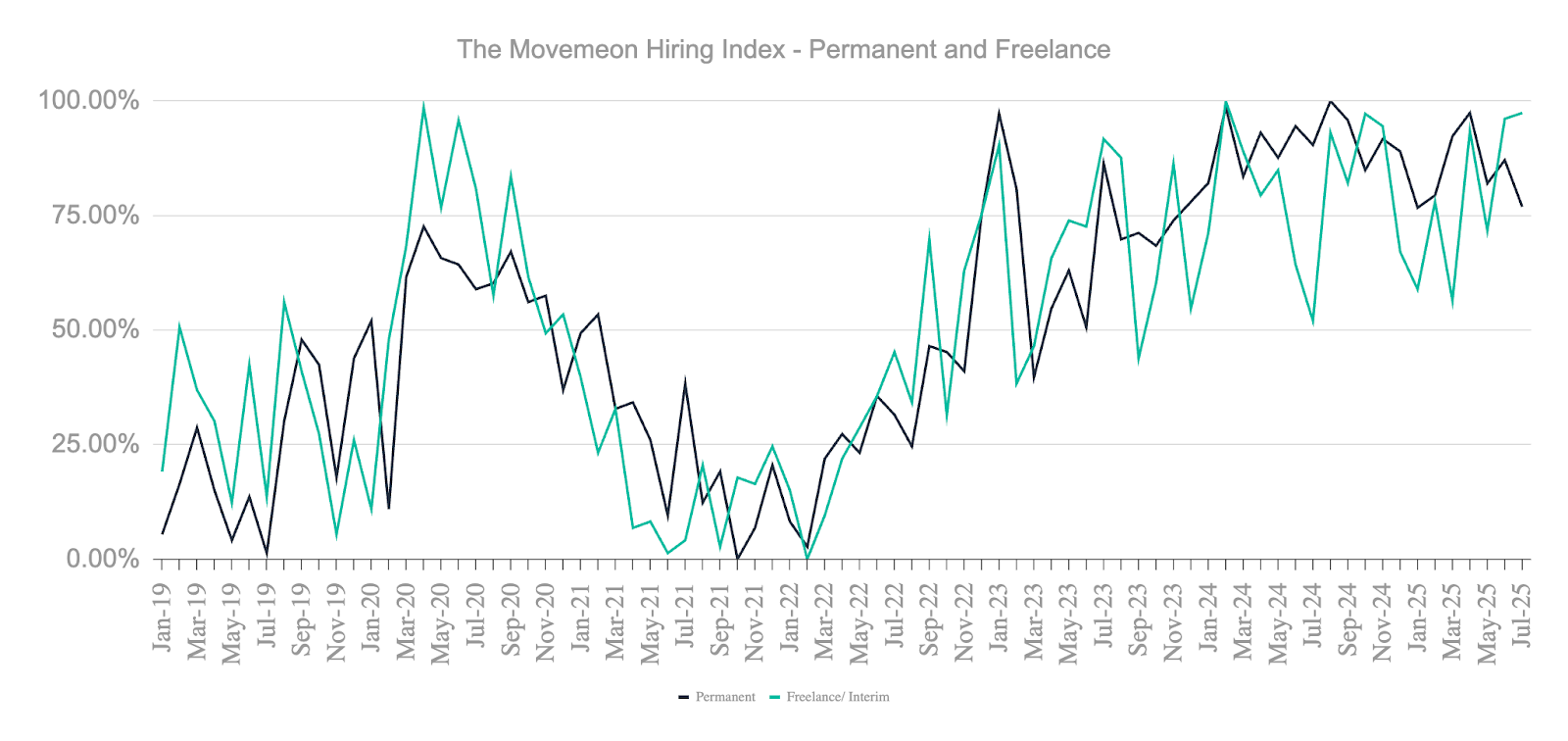




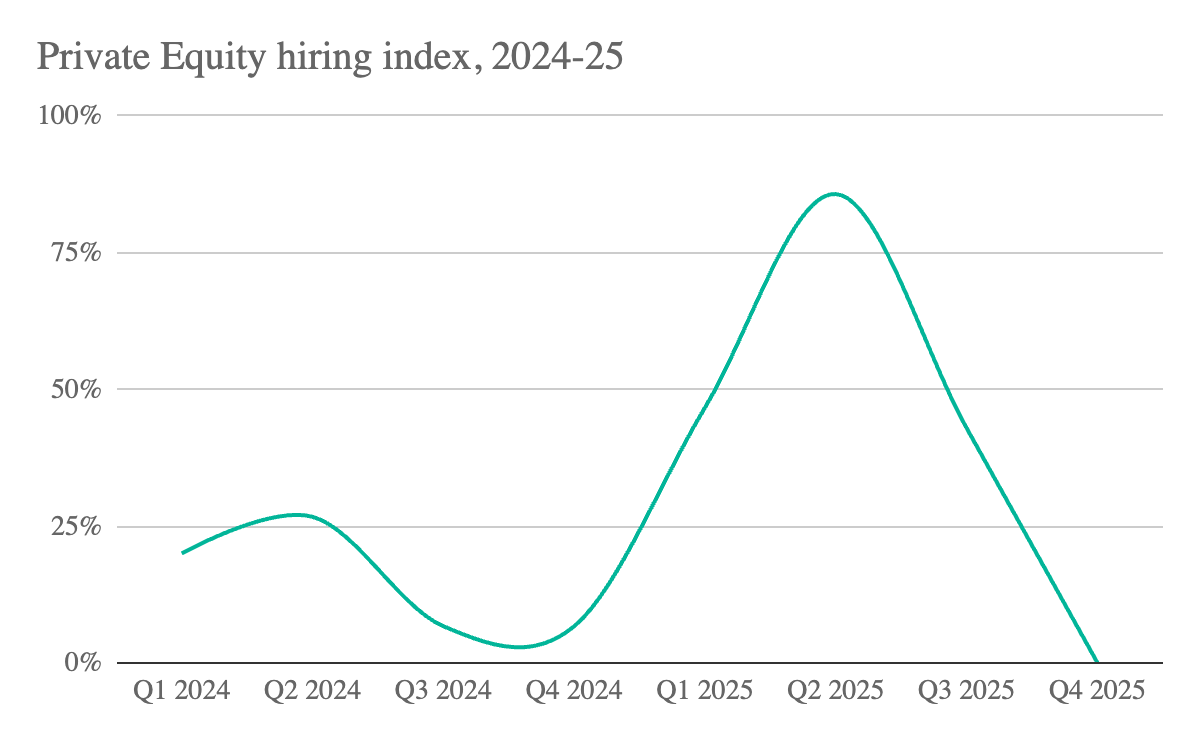
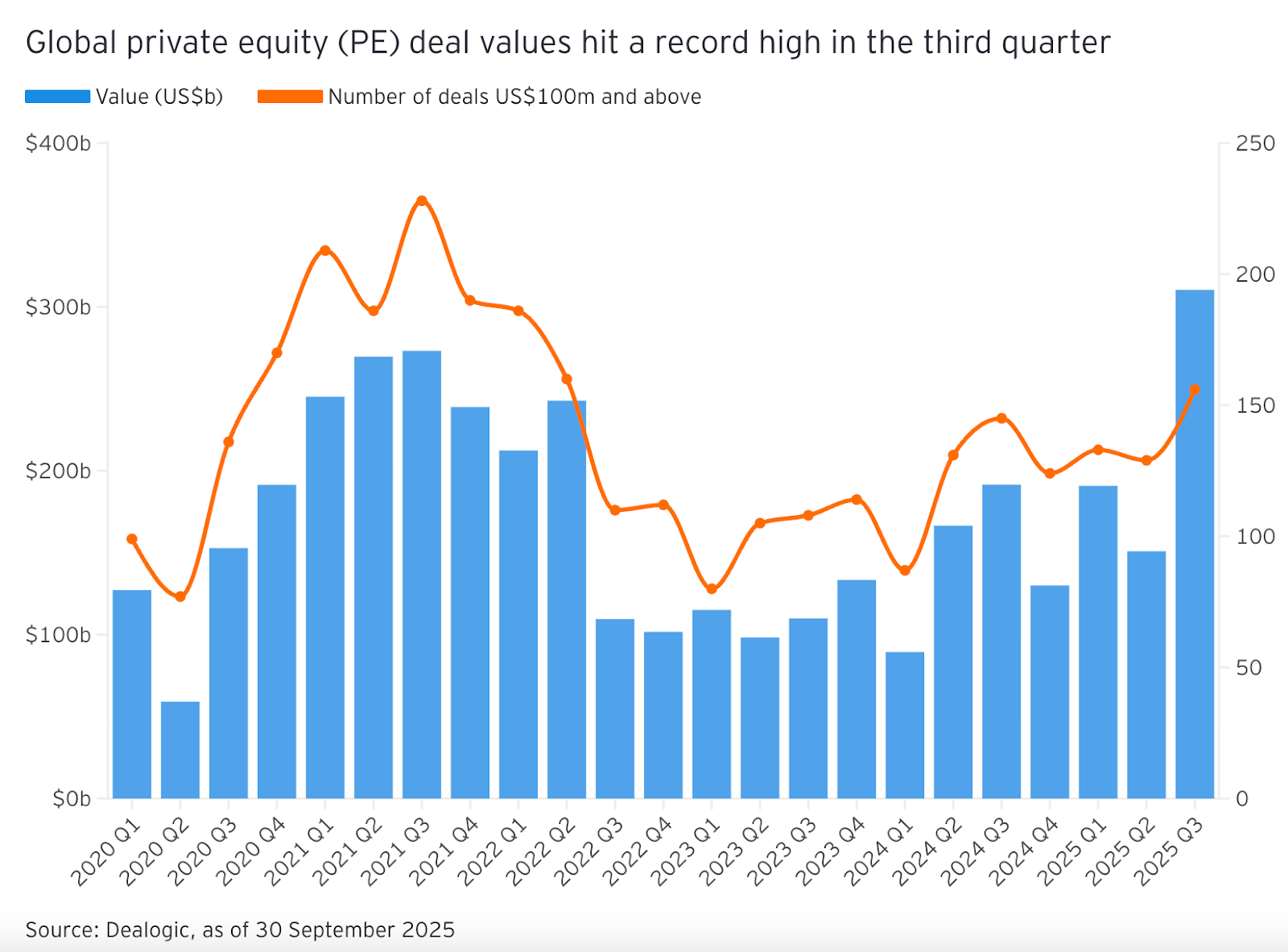
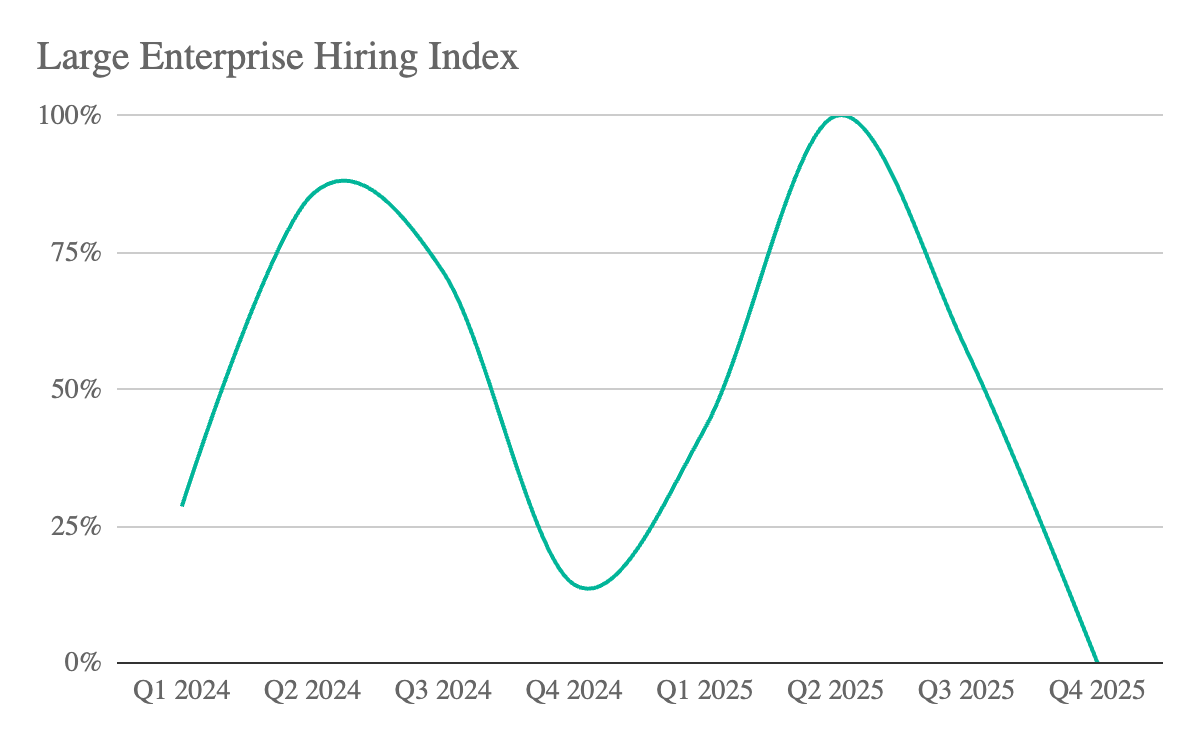
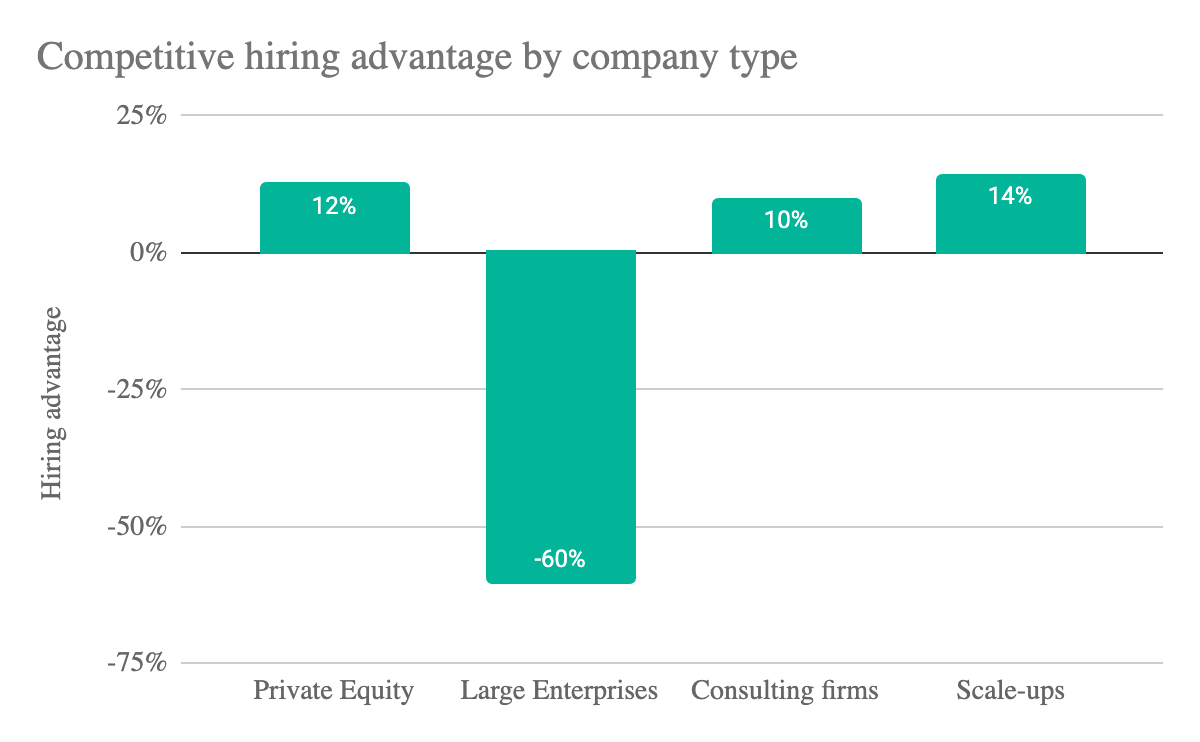
.jpg)

.png)

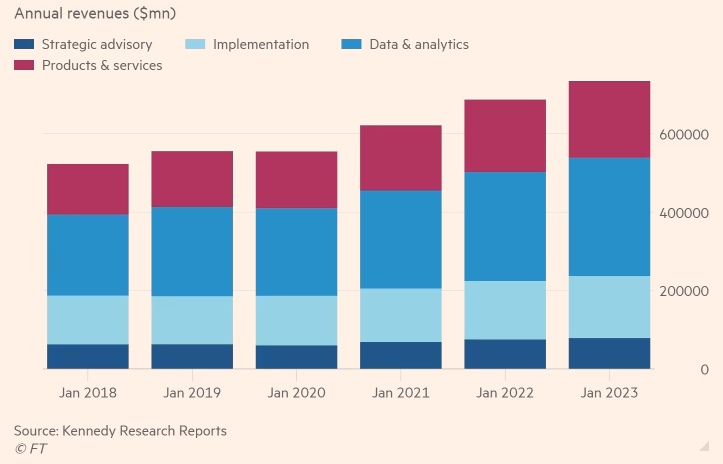
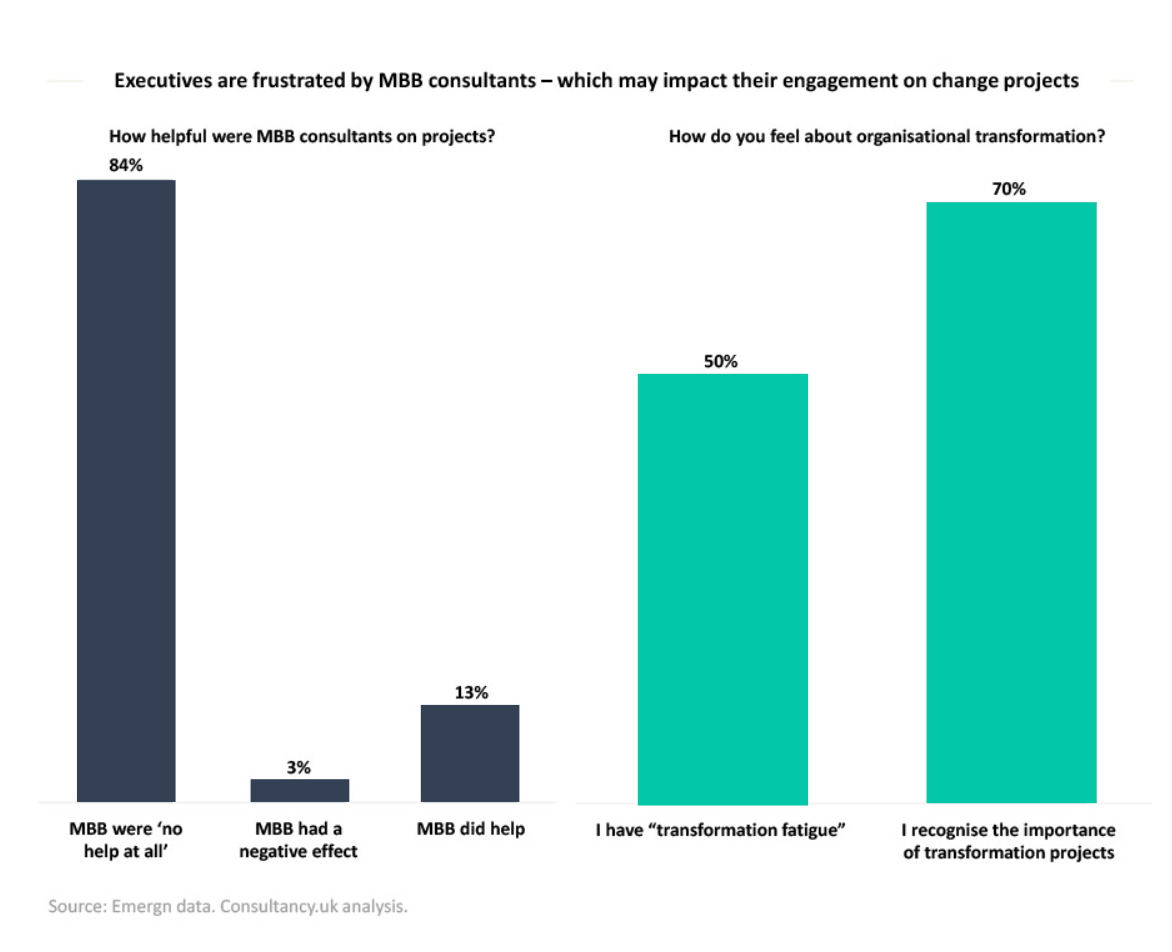
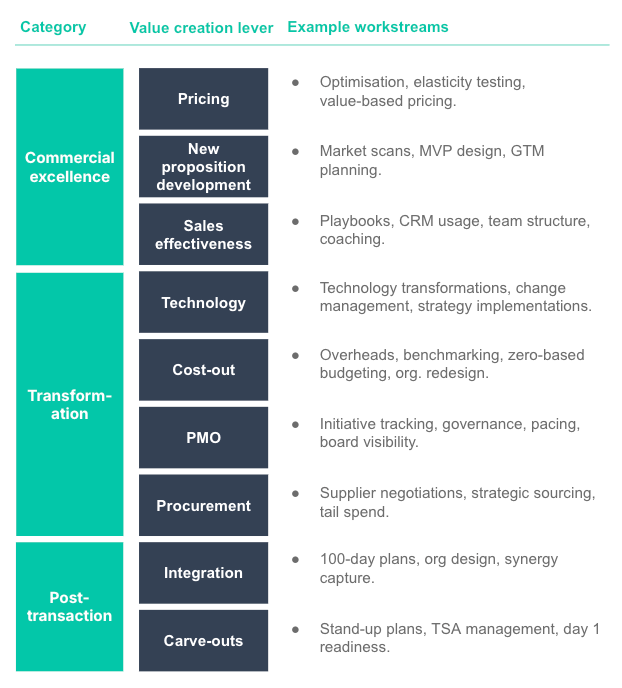

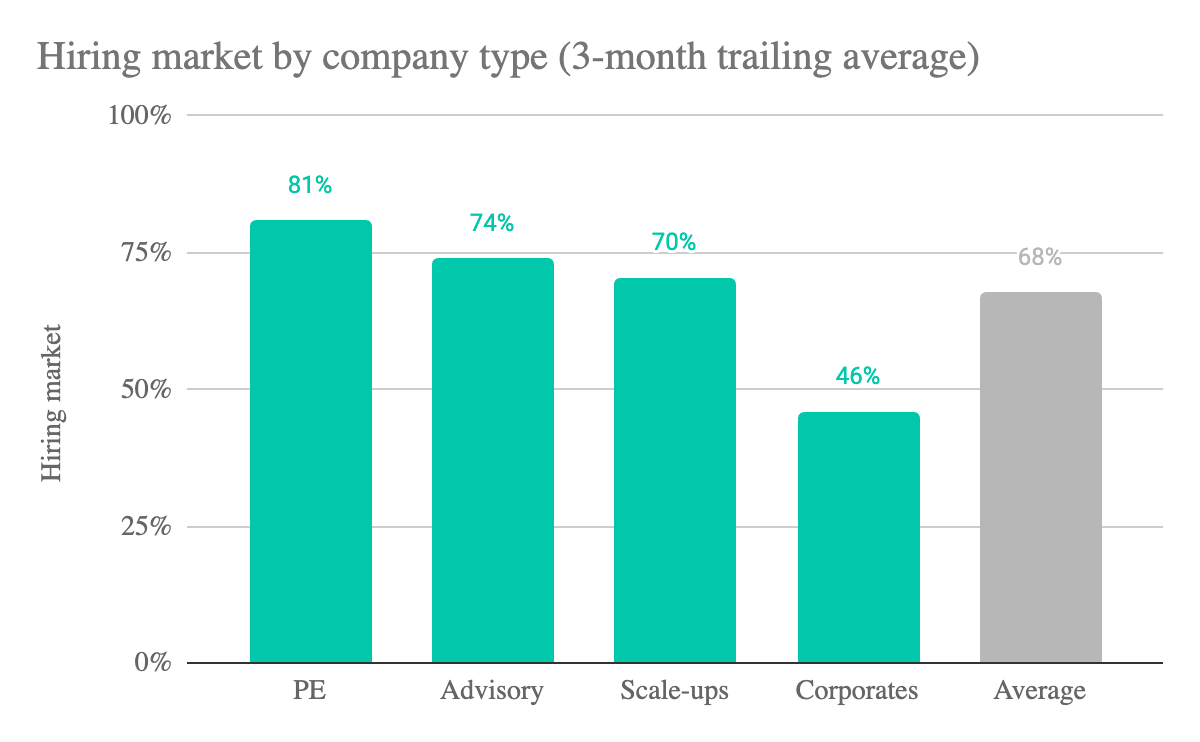
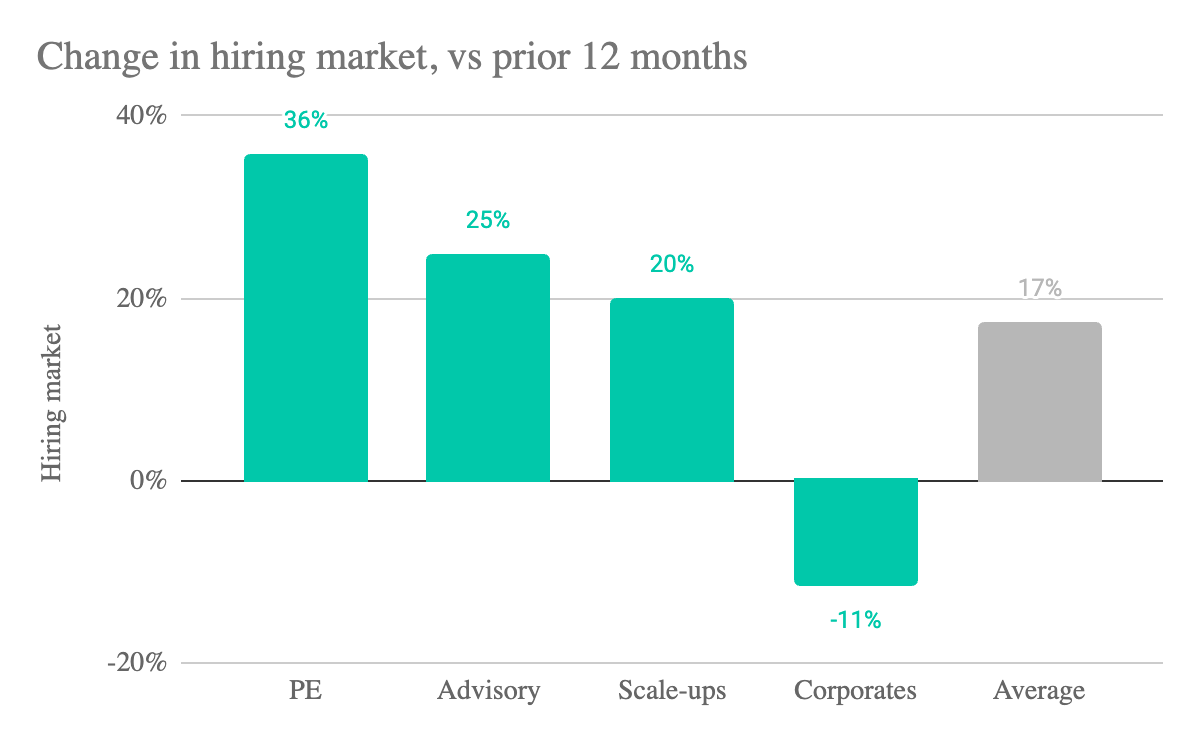


.jpg)


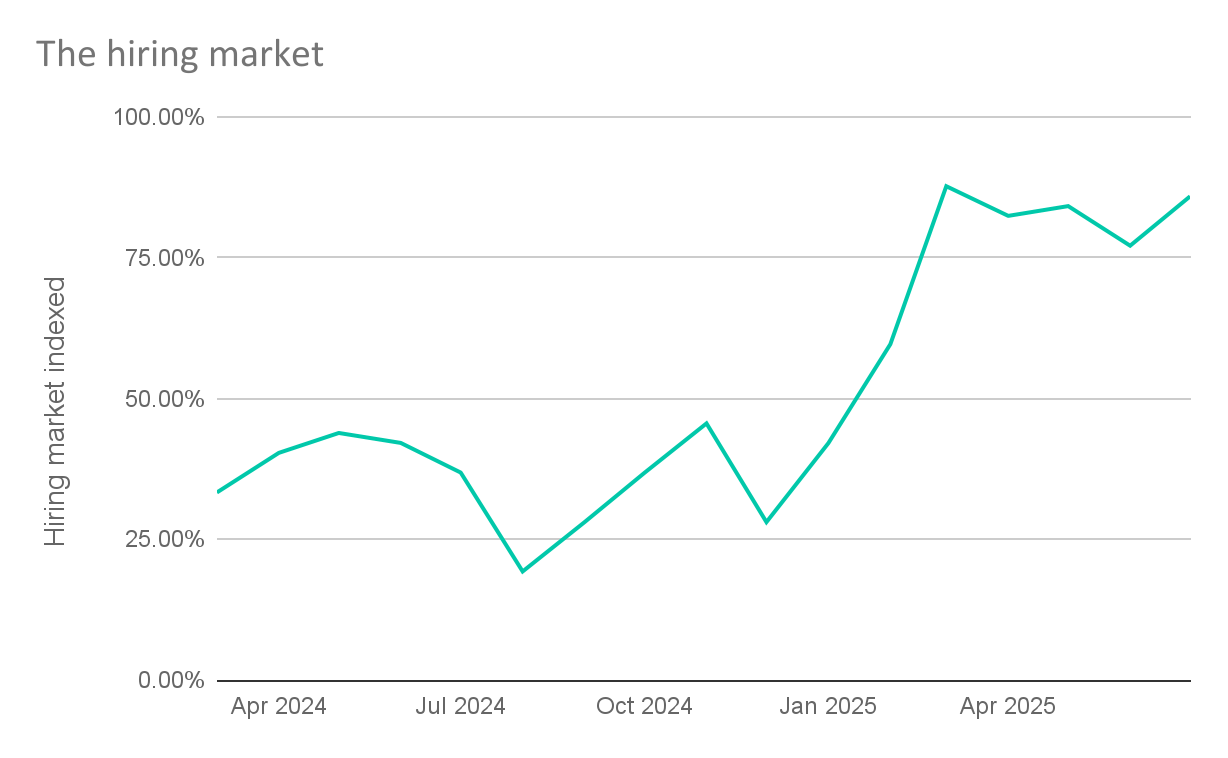



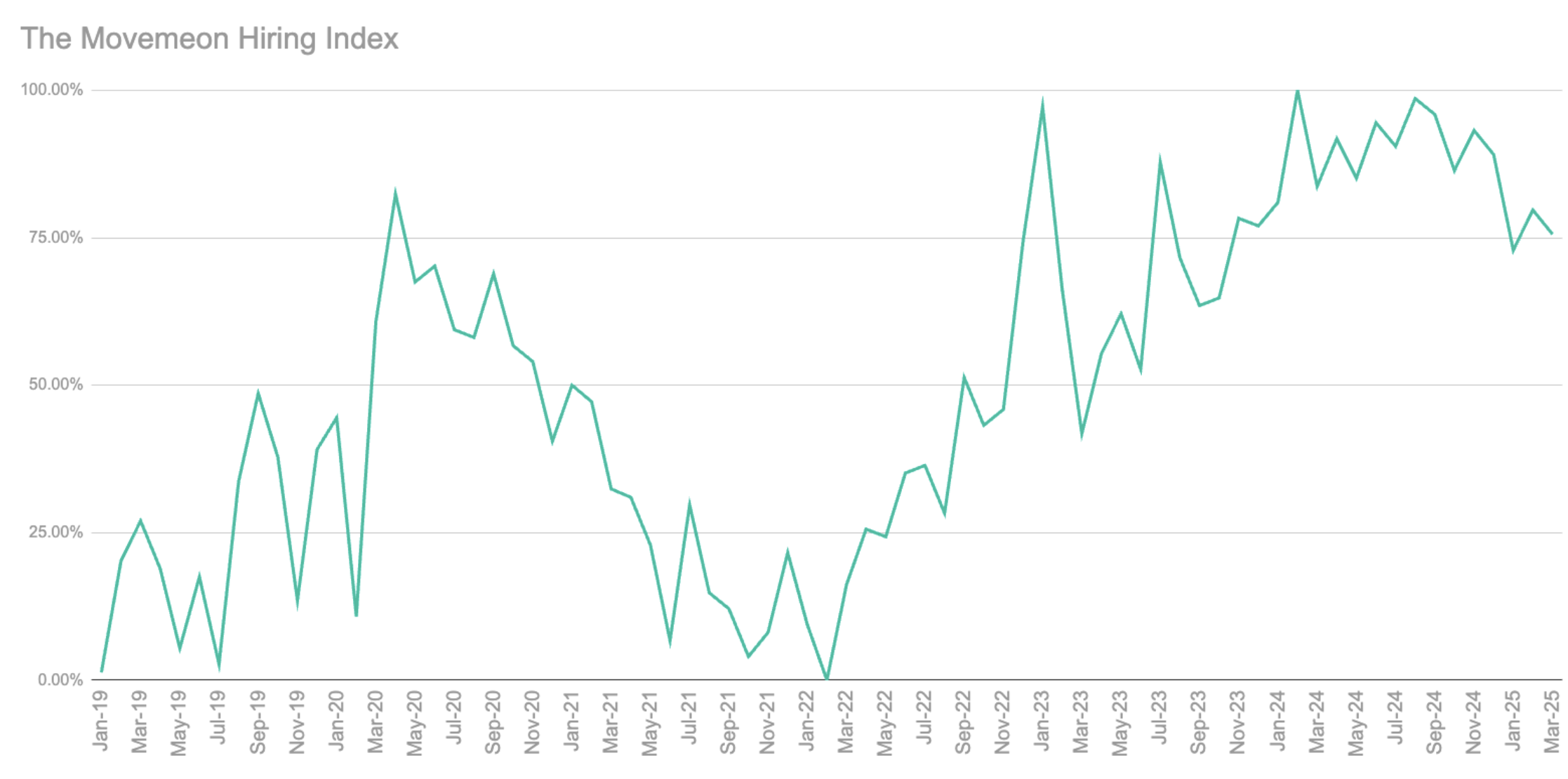







.jpg)

.png)













.jpg)

